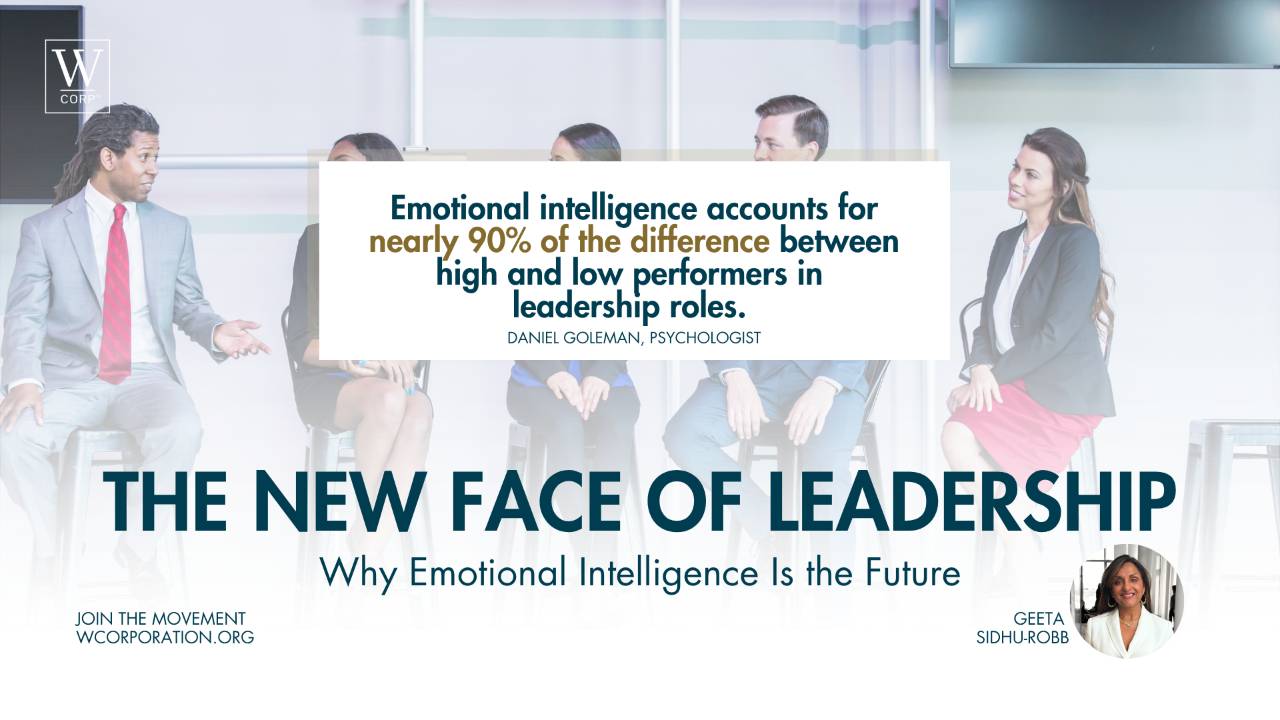The New Face of Leadership: Why Emotional Intelligence Is the Future
Aug 29, 2025
In the past, leadership was often defined by decisiveness, dominance, and traditional authority. But today, the most effective leaders aren’t the loudest voices in the room - they’re the most emotionally intelligent. As workplaces evolve to prioritize inclusion, adaptability, and collaboration, emotional intelligence (EQ) is emerging not as a “nice to have,” but as a critical driver of performance and innovation.
Research shows that emotional intelligence accounts for nearly 90% of the difference between high and low performers in leadership roles (National Library of Medicine). And while EQ has long been undervalued in traditional leadership models, it's now reshaping how companies define and cultivate successful leadership.

Emotional Intelligence: More Than a Soft Skill
Emotional intelligence refers to a person’s ability to recognize, understand, and manage their own emotions - while also navigating the emotions of others. It encompasses empathy, self-awareness, relationship-building, and emotional regulation. These are not just interpersonal “extras”; they’re strategic assets.
According to McKinsey & Company, organizations with emotionally intelligent leaders are more resilient, innovative, and inclusive, and they report higher employee engagement and retention (McKinsey).
In fact, leaders with strong EQ have been shown to improve team productivity and psychological safety - key indicators of team success in both remote and in-person environments.
The Gendered Undervaluation of EQ
Despite the growing recognition of EQ, it’s still often seen as a “feminine” trait - and therefore, less strategic. This contributes to the continued undervaluation of women in leadership. Numerous studies show that women score higher than men in nearly every emotional intelligence competency - from empathy to conflict management to adaptability (Korn Ferry).

Yet, women in leadership are still more likely to be judged as “too emotional” or “not assertive enough,” even when demonstrating EQ-driven leadership that delivers measurable results.
“Leadership is all about emotional intelligence. Management is taught, while leadership is experienced.” – Rajeev Suri
Why EQ Matters Now More Than Ever
The modern workplace is volatile, diverse, and deeply human. Top-down, authoritarian leadership models are faltering in the face of rapid change. Teams want leaders who listen, create psychological safety, and build resilient cultures - all of which hinge on emotional intelligence.
- 67% of Employees with empathetic managers reporting being often or always engaged, compared to 24% of less empathetic managers. (Catalyst).
- Organizations that prioritize emotional intelligence outperform competitors in key areas like customer loyalty, innovation, and retention (Forbes).
Even the World Economic Forum has named emotional intelligence as one of the top 10 job skills for the future - alongside critical thinking and creativity (WEF).

Breaking the Bias Around “Soft” Leadership
Despite the evidence, many organizations still favor traditional “hard skill” leaders - those with financial acumen or technical credentials - over those who excel in emotional leadership. This bias holds back companies from leveraging some of their most capable and adaptive talent.
It’s time to challenge the outdated idea that emotionally intelligent leadership is “less serious” or “too soft.” In truth, the ability to motivate, mediate, and mobilize people is a hard-won skill, and a business advantage.
How Companies Can Embrace EQ-Led Leadership
- Redefine Leadership Metrics
Move beyond performance reviews focused solely on output. Integrate emotional intelligence into KPIs and leadership development assessments. - Invest in EQ Training
Prioritize coaching, mentorship, and psychological safety training for all leaders, not just HR professionals. - Promote Empathetic Managers
Recognize and reward leaders who foster trust, collaboration, and inclusion. - Close the Gender Gap in Leadership
Address the implicit bias that undervalues emotionally intelligent women. Promote based on competency and impact, not outdated leadership molds.
The Future of Leadership Is Human
In the era of automation, what sets great leaders apart is not how efficiently they work, but how effectively they lead humans. Emotional intelligence isn’t an accessory to good leadership; it’s the foundation of it. As businesses look to thrive in uncertain times, the smartest thing they can do is invest in leaders who not only think, but feel, with intention.
The next generation of leadership is here - and it’s emotionally intelligent.





